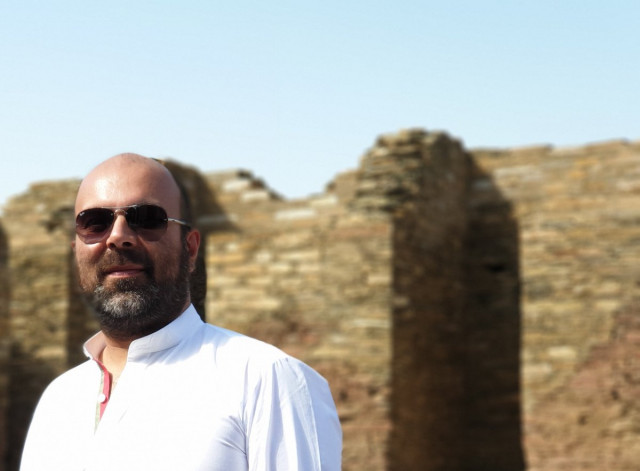How a McKinsey partner became K-P’s finance minister
Even if I disagreed with something Imran said, I had to contribute constructively: Taimur Khan Jhagra

K-P Finance Minister Taimur Saleem Jhagra. PHOTO: PTI
His journey is expected in some ways and unexpected in others, illustrating many lessons for change makers, Pakistan and the PTI. ‘Did your colleagues at McKinsey ever ask what you were smoking when they found out you’re leaving the company to join politics in Pakistan?’ I asked.
"Many of my partners were incredibly supportive," Taimur shares. "It’s my friends and family who were wondering what drug I was on."
"Then there were questions like what political party should I join? Many of my supporters asked me not to join PTI. But I had been an Imran Khan fan even before he joined politics. Even if I disagreed with something Imran said, I had to contribute constructively. I was ready to join his party but there was no space in K-P’s PTI chapter, which was well developed by then."
Where there is a will in Pakistani politics though, there is always a way to parachute in. "The local party chapter reacted against me vehemently and my effigies were burning on the road. It was quite intimidating," Taimur said.
Around 33 people applied for the ticket but Taimur was awarded one for urban Peshawar despite the fact that he had been campaigning in his home district located in rural Peshawar.
Budget debate: Opposition lambasts govt for ‘deficit’ f inance bill
"I had 30 days to understand unfamiliar surroundings and campaign for a win. By rational theory, if Islamabad, DHA in Karachi and Lahore, were to go PTI’s way, urban Peshawar – Hayatabad – should have also gone our way. But the amount of opposition within the party doubled our work. We spent four days in each union council and had 16 hour days. I was being constantly bombarded by advice and was told that every phone call I didn’t take could be a decision that would cost us."
"On election night, I was confident but nervous," Taimur said. "Every time I got a call from a polling agent about some sort of funny business, there was panic in the room."
"After the first polling station to count votes announced that I had won, my supporters in the party told me to hold my horses and wait for the full results to come in. It was a humbling moment none the less, especially since I had put my family's name on the line," Taimur shared.
"As the finance minister, I want to focus on two things. First, I want to see how to generate more revenue withing the province and second, how does one utilise the budget more efficiently. I also want to see how we can improve existing schools, instead of just building new ones. My vision is to transform the way K-P earns and spends its resources," he said, sounding like a consultant.
K-P govt to appoint special secretary for ex-FATA f iscal issues
As the architect of PTI’s national 100 day plan (which reads like a McKinsey report), I ask whether developing a 100 day plan was a mistake in hindsight as it forced the government to make clumsy errors as they artificially tried to deliver a five year mandate within 100 days. "No," he said, unconvincingly.
"The purpose of the 100 day plan was to change the government's culture in Pakistan and to make a commitment to the people. The cost of the commitment is being castigated publicly when we don’t deliver. This is where my corporate training comes into practice. You always learn from your mistakes and get better. We never thought the 100 day plan would capture the country’s imagination the way it did. In 1997, PTI was swept aside in the first elections Imran participated in. But he didn’t give up. And look how far we’ve come. You have to keep learning and working," Taimur said.
K-P govt will not offer subsidy for BRT: Jhagra
As an urbane, management consultant, born into a politically connected family, he serves as the perfect bridge between purana Pakistan and naya Pakistan.
Talking about the future, Taimur said he wants to spend more time with his kids. "I hardly get time to be a father. And I want to make sure that I’m there for my constituency's people and not just consumed by the responsibilities of being the finance minister."
His advice for those looking to enter politics in the future is a quote by US president John F Kennedy, "ask not what your country can do for you, ask what you can do for your country."
Pakistan, has done more for Taimur in a year, than perhaps even McKinsey was able to do in a decade. Here’s hoping Taimur will be able to return the favor to Pakistan, PTI and his family.













COMMENTS
Comments are moderated and generally will be posted if they are on-topic and not abusive.
For more information, please see our Comments FAQ